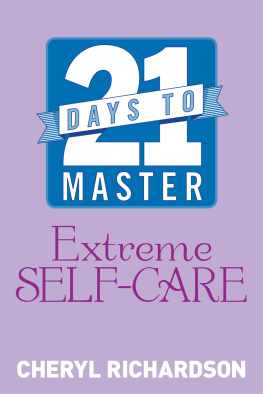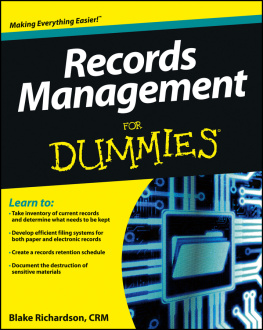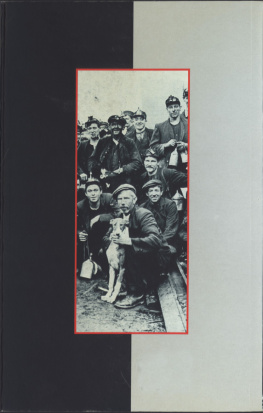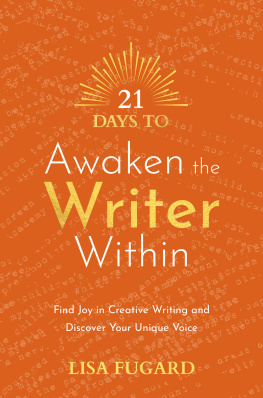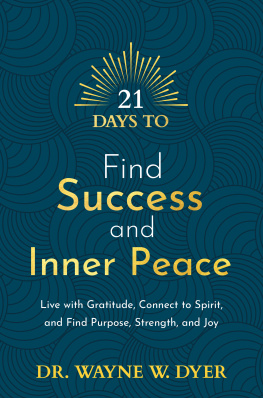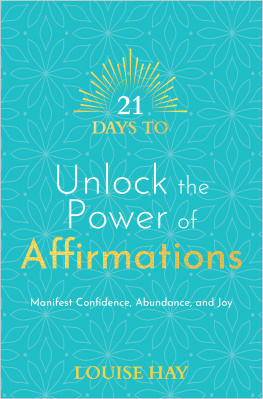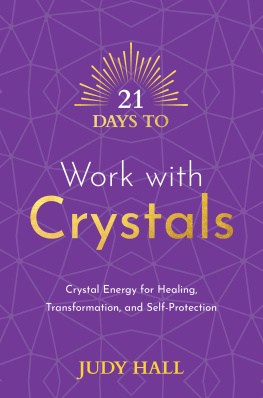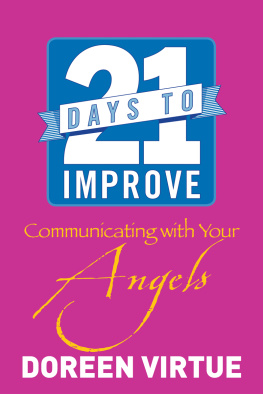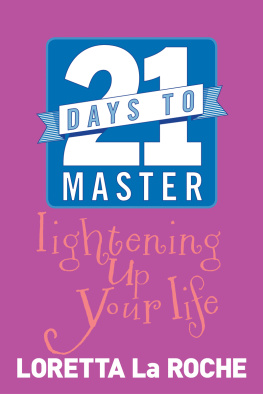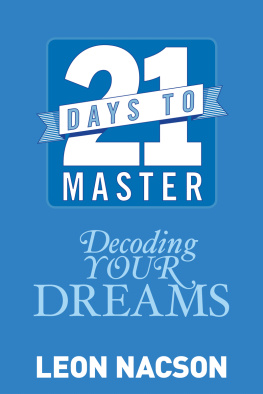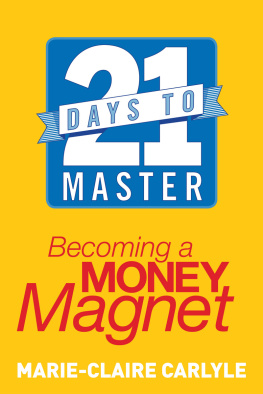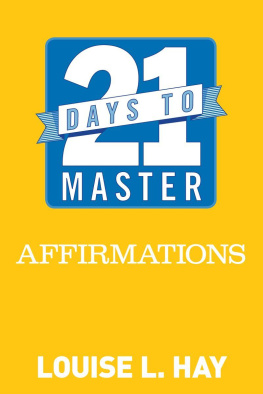Cheryl Richardson 2011
The moral rights of the author have been asserted.
All rights reserved. No part of this book may be reproduced by any mechanical, photographic or electronic process, or in the form of a phonographic recording; nor may it be stored in a retrieval system, transmitted or otherwise be copied for public or private use, other than for fair use as brief quotations embodied in articles and reviews, without prior written permission of the publisher.
The author of this book does not dispense medical advice or prescribe the use of any technique as a form of treatment for physical or medical problems without the advice of a physician, either directly or indirectly. The intent of the author is only to offer information of a general nature to help you in your quest for emotional and spiritual wellbeing. In the event you use any of the information in this book for yourself, which is your constitutional right, the author and the publisher assume no responsibility for your actions.
A catalogue record for this book is available from the British Library.
ISBN 978-1-84850-935-1 in Mobipocket format
ISBN 978-1-84850-936-8 in epub format
Publishers note
Research has shown that establishing a habit requires 21 days practice. Thats why Hay House has decided to adapt the work of some of its most prestigious authors into these short, 21-day courses, designed specifically to develop new mastery of subjects such as self-care.
21 Days to Master Extreme Self-Care draws from Cheryl Richardsons bestselling The Art of Extreme Self-Care (Hay House, 2009).
Other titles that will help you to explore further the concepts featured in the 21-day program are listed in at the end of this ebook.
Sign up to Cheryl's e-Newsletter here: www.cherylrichardson.com/newsletter/subscribe
Twitter: @coachoncall
Facebook: www.facebook.com/cherylrichardson
Introduction
In 1994, I made a decision to hire my first personal coach. Although I thought this decision would make me a better coach myself, it turned out to do much moreit gave me a better life. Thomas Leonard, founder of Coach University and the leading pioneer in the field of professional coaching, was the mans name, and it was during our work together that Thomas introduced me to the concept of Extreme Self-Care.
The word extreme intrigued me and got my attention. I remember feeling excited about the idea, but also a little nervous. From Thomass perspective, Extreme Self-Care meant taking my care to a whole new levela level that, to me, seemed arrogant and selfish, practiced by people who had an inappropriate sense of entitlement. It meant taking radical action to improve my life and engaging in daily habits that allowed me to maintain this new standard of living. For example, it wasnt enough to take a weekend off from helping others so that I could enjoy some downtime. Thomas wanted me to schedule time for myself (on my calendar, in ink) every day for six months.
Extreme Self-Care also involved surrounding myself with people who were smart, self-aware, and only interested in two-way relationships. It meant taking bold steps, such as eliminating clutter from my life, for good; creating a soul-nourishing work and home environment, and keeping it that way; getting my financial act together so that I always had choices about how to live my life; and not making any commitments whatsoever out of guilt or obligation.
In addition, Thomas explained that making pleasure a priority was critical for Extreme Self-Carereal pleasure, not just a massage every couple of months or a yearly vacation. It meant leaving work in the middle of the day to get out into nature, enjoying a great massage once a week, and developing daily habits that made me feel happy and nurtured, including listening to the music I loved, drinking my favorite tea, or ordering fresh flowers for my office.
At first I had great resistance to the idea of Extreme Self-Care. A massage once a week? How could I ever afford that when I had to pay my rent? Time to myself every day? I could barely find time to go to the bathroom, let alone for a walk at lunch. My coachs suggestions seemed idealistic, bordering on absurd. But, as I would soon discover, a great life starts with an open mind.
As I slowly began to incorporate Extreme Self-Care into my life, it was clear that internal changes were required in order to make these behaviors stick. For example, I needed to quit my good-girl role and quit being a martyr, and focus on getting my needs met. I had to stop expecting others to read my mind and start being direct about what I wanted. I was challenged to try asking for help long before I needed it. Rather than moan about how others had let me down, I was to see my frustration as an indication that something needed to change. I also had to begin asking people to share the load instead of being a hero by attempting to do it all myself. Finally, I had to stop being an automatic yes machine when people asked for my help and instead learn to say no with confidence and ease.
I soon discovered that making these changes wasnt easy. When I look back now, I can see that I was challenging a legacy of self-sacrifice and overgiving passed down to me by generations of women in my familythe same legacy that confounds so many women even now. For those of us who do such thingsand this includes men as well as womenits often an automatic response, as if a default button gets pushed and we reflexively revert to these behaviors.
A good coach focuses on the source of a problem rather than the symptoms. In my work with Thomas, I was forced to look at the truth of why I continued to give too much, usually at my own expense. I wanted people to like me, to enjoy spending time with me, and to see me as wise and helpful. I also wanted to avoid the anxiety I felt whenever someone disapproved of something I did. Funny, but after years of practicing Extreme Self-Care, Ive realized something ironic: if you want to live an authentic, meaningful life, you need to master the art of disappointing and upsetting others, hurting feelings, and living with the reality that some people just wont like you. It may not be easy, but its essential if you want your life to reflect your deepest desires, values, and needs.
The concept of making ones self-care a priority remains controversial to this very day. Over the years Ive repeatedly had to defend this idea to the media, as well as to clients and audience members. Now I welcome the opportunity, and heres why: the practice of Extreme Self-Care forces us to make choices and decisions that honor and reflect the true nature of our soul. While the whole notion of this might seem selfish or self-centered, doing so actually allows us to make our greatest contribution to the world.
From years of personal experience, as well as from the work Ive done coaching many caring and hardworking men and women, Ive learned that when we care for ourselves deeply and deliberately, we naturally begin to care for othersour families, our friends, and the worldin a healthier and more effective way. We become conscious and conscientious people. We tell the truth. We make choices from a place of love and compassion instead of guilt and obligation. And we begin to understandon a visceral levelthat were all connected, and that our individual actions affect the greater whole in a more profound way than we ever imagined.
The art of Extreme Self-Care takes patience, commitment, and practice. It initially requires a willingness to sit with some pretty uncomfortable feelings, too, such as guiltfor putting your own needs first, fearof being judged and criticized by others, or anxietyfrom challenging long-held beliefs and behaviors. Its an organic, evolutionary process; an art as opposed to a science. Over time, youll make progress and become more comfortable with the process, but youll also regress. I know the dance well. There are days when I set firm limits on my availability so that I dont feel overwhelmed with work, yet there are other days when Im beating myself up, wondering why the hell Im still in the office at 9 p.m. The difference today is that Im much more aware of what it feels like when Im getting into trouble, and I know what I have to do to get back on course.

